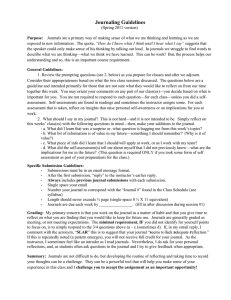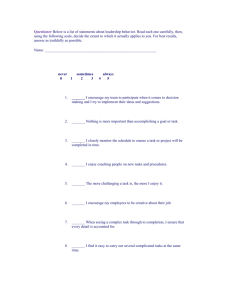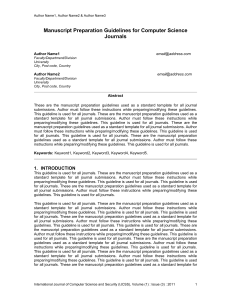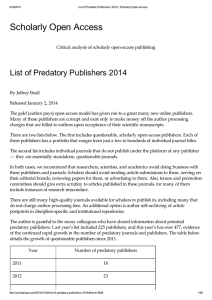Journaling Guidelines
advertisement
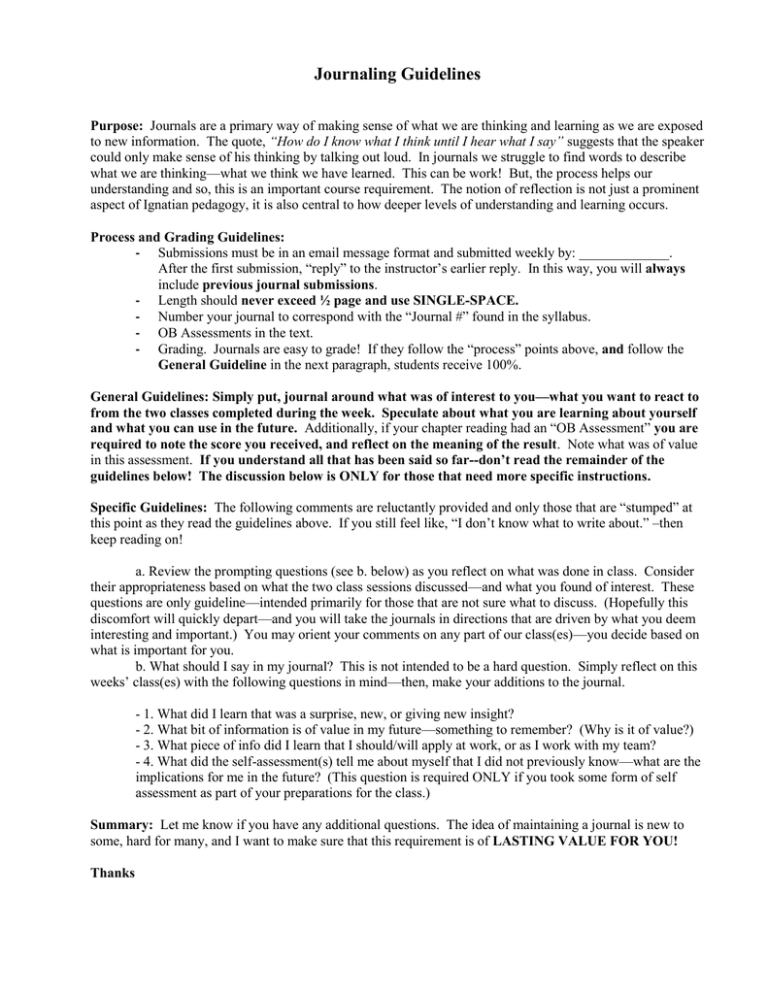
Journaling Guidelines Purpose: Journals are a primary way of making sense of what we are thinking and learning as we are exposed to new information. The quote, “How do I know what I think until I hear what I say” suggests that the speaker could only make sense of his thinking by talking out loud. In journals we struggle to find words to describe what we are thinking—what we think we have learned. This can be work! But, the process helps our understanding and so, this is an important course requirement. The notion of reflection is not just a prominent aspect of Ignatian pedagogy, it is also central to how deeper levels of understanding and learning occurs. Process and Grading Guidelines: - Submissions must be in an email message format and submitted weekly by: _____________. After the first submission, “reply” to the instructor’s earlier reply. In this way, you will always include previous journal submissions. - Length should never exceed ½ page and use SINGLE-SPACE. - Number your journal to correspond with the “Journal #” found in the syllabus. - OB Assessments in the text. - Grading. Journals are easy to grade! If they follow the “process” points above, and follow the General Guideline in the next paragraph, students receive 100%. General Guidelines: Simply put, journal around what was of interest to you—what you want to react to from the two classes completed during the week. Speculate about what you are learning about yourself and what you can use in the future. Additionally, if your chapter reading had an “OB Assessment” you are required to note the score you received, and reflect on the meaning of the result. Note what was of value in this assessment. If you understand all that has been said so far--don’t read the remainder of the guidelines below! The discussion below is ONLY for those that need more specific instructions. Specific Guidelines: The following comments are reluctantly provided and only those that are “stumped” at this point as they read the guidelines above. If you still feel like, “I don’t know what to write about.” –then keep reading on! a. Review the prompting questions (see b. below) as you reflect on what was done in class. Consider their appropriateness based on what the two class sessions discussed—and what you found of interest. These questions are only guideline—intended primarily for those that are not sure what to discuss. (Hopefully this discomfort will quickly depart—and you will take the journals in directions that are driven by what you deem interesting and important.) You may orient your comments on any part of our class(es)—you decide based on what is important for you. b. What should I say in my journal? This is not intended to be a hard question. Simply reflect on this weeks’ class(es) with the following questions in mind—then, make your additions to the journal. - 1. What did I learn that was a surprise, new, or giving new insight? - 2. What bit of information is of value in my future—something to remember? (Why is it of value?) - 3. What piece of info did I learn that I should/will apply at work, or as I work with my team? - 4. What did the self-assessment(s) tell me about myself that I did not previously know—what are the implications for me in the future? (This question is required ONLY if you took some form of self assessment as part of your preparations for the class.) Summary: Let me know if you have any additional questions. The idea of maintaining a journal is new to some, hard for many, and I want to make sure that this requirement is of LASTING VALUE FOR YOU! Thanks
